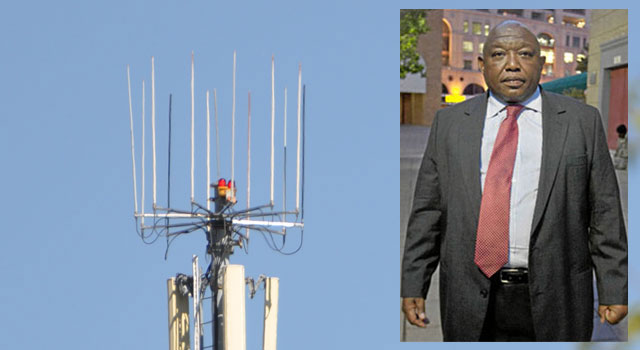
The Independent Communication Authority of South Africa (Icasa) should be pursuing iBurst parent Wireless Business Solutions (WBS) for using spectrum unlawfully rather than simply trying to get the company to settle its outstanding fees.
This is the view of Icasa councillor Joseph Lebooa, who is at the heart of an ugly dispute between the telecommunications regulator and WBS.
On Monday, WBS called for Lebooa to be removed from taking part in any Icasa investigations into the company because it says he can’t be expected to be objective. WBS previously made the same request after Lebooa was hijacked and beaten up in February by assailants he claimed in a newspaper interview were sent by WBS.
“So far, I’m the only one fighting WBS,” he tells TechCentral. “The [Icasa] council is derelict in its duties and refuses to fight [the company]. In the first place, someone must ask WBS to produce its licence certificates for every year it’s had operations [and] for every portion of spectrum used.”
Lebooa says spectrum licence certificates are released only when annual licence fees have been paid. “For six frequencies, WBS has no certificates for any of the years it’s been operating.”
He claims, too, that WBS has been operating “illegally” by using spectrum for which it has not paid, a charge that WBS has strongly refuted.
“Icasa is raising the case as if it’s a matter of settling the accounts. It’s not. It’s a matter of WBS operating illegally. That needs to be settled before settling the accounts,” Lebooa says. “Icasa definitely needs to recoup whatever [WBS] owes, but first we need to find them guilty for illegally using spectrum.”
Moreover, Lebooa says the figure of almost R60m that Icasa says WBS owes in outstanding spectrum licence fees is too low.
“WBS owes more than R300m, in my opinion. All of the links [WBS] uses, including the illegal ones, need to be considered in the final figure.”
Lebooa claims Icasa has briefed its lawyers to reach a settlement over outstanding fees with WBS, rather than pursuing the company over its alleged unlawful use of spectrum. This, he says, is why WBS was granted an urgent interdict by the high court in Johannesburg forcing Icasa to return equipment it had seized in raids on six of the company’s facilities earlier this month.
“The [Icasa] council decided we’d defend the case on the basis that WBS had been operating illegally, but that wasn’t the mandate to the lawyers, so the interdict was allowed,” he says. “Had Icasa defended [the raids] on the grounds of illegal operation, it would not have been required to return WBS equipment.”
Because WBS secured the interdict in the wake of the raids, Lebooa says it now appears as if Icasa was malicious. WBS said last week that it has tried repeatedly to pay the authority, but didn’t know how much is owed. “It was a seizure because of illegality, not because someone wanted to pay us but wasn’t doing it quickly enough.”
Should Icasa continue to pursue the matter on the basis of the settlement of outstanding fees rather than going after the company for its alleged unlawful use of spectrum, Lebooa says WBS could sue the authority over this month’s raids, which caused extensive downtime for users of iBurst and sister company Broadlink.
“Icasa is raising this as a settlement case because WBS has been talking about settlement. But the Electronic Communications Act and the Icasa Act don’t allow Icasa to negotiate with illegal operators. If there’s no licence certificate, there should be no discussion.
“This whole case is clouded with things to create confusion. If WBS can produce licence certificates for each frequency for each year it’s been operating, it’s in the clear.” — (c) 2013 NewsCentral Media




